
Two Wings
Unlocking the Power of Global Literacy
The Impact of Literacy in Empowering Individuals and Transforming Societies
Literacy is more than just reading and writing; it is a foundation for global development. Imagine this: While you effortlessly browse, select, and read articles like this one, 763 million adults (two-thirds of whom are women) and 250 million children lack basic literacy skills; they cannot write or read any form of text. For them, much of the world remains a closed book.
In essence, global literacy is not just about reading and writing. It’s about unlocking doors to vast opportunities. It is a human right, a tool for empowerment, and a catalyst for economic growth and societal progress. Global literacy is our gateway to a just, sustainable, and peaceful world. This article explores literacy's transformative impact on individuals and global societies.
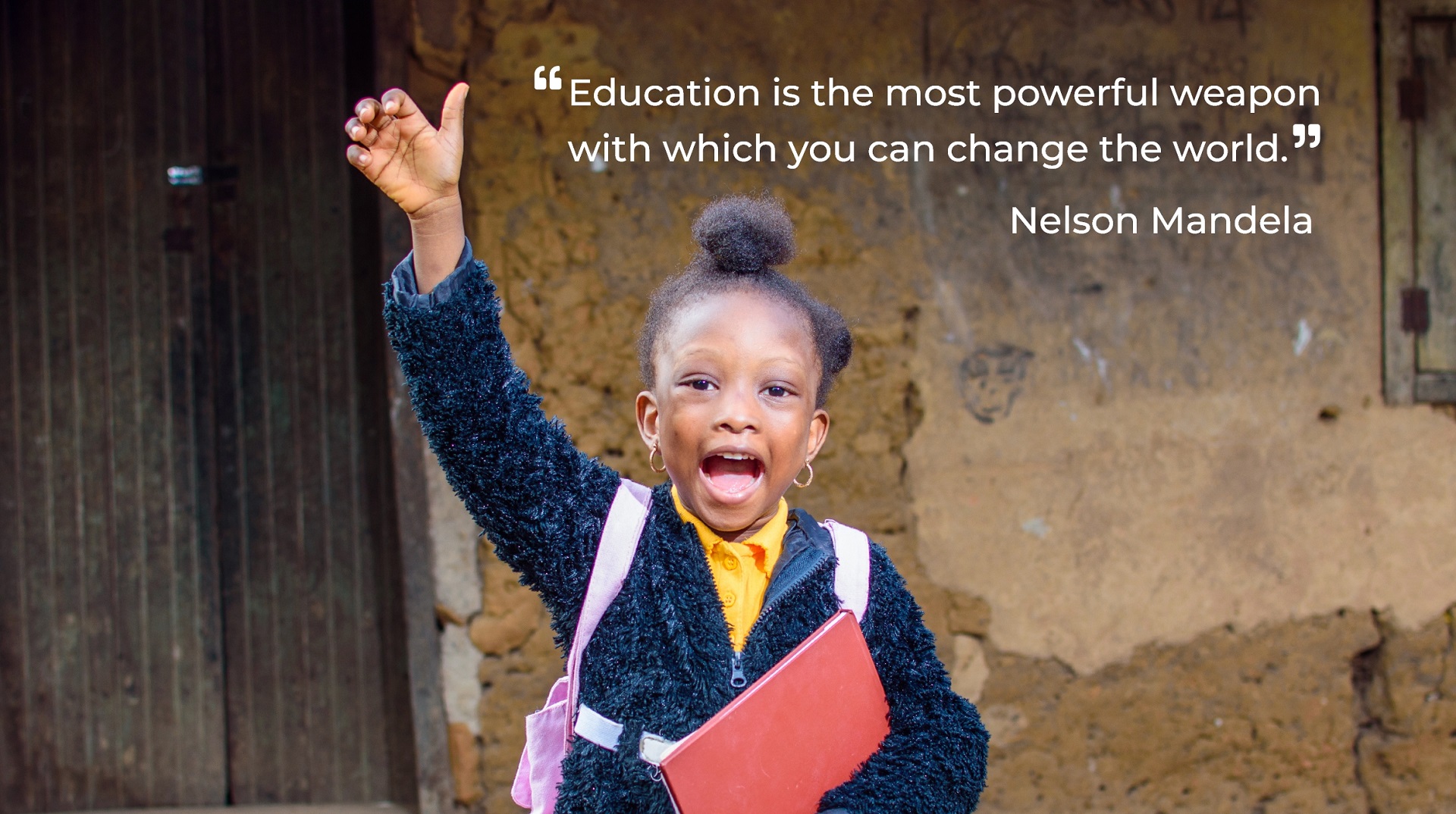
A Happy School Girl with a Book
The Global Literacy Rates from the 19th Century Onward
From the 19th to the 21st century, global literacy rates have significantly evolved. In 1820, a mere 12% of the world's population could read and write. This rate rose slowly to 21% by 1900. However, the mid-19th century onwards saw accelerated growth due to cultural, technological, and social changes. By 2023, the literacy rate soared to 87%. [1]
Yet, this growth is uneven. While Europe, the former CIS nations, Argentina, and Uruguay near a 100% literacy rate, South Asia, West Asia, and Sub-Saharan Africa struggle. In countries like Chad, Mali, South Sudan, Niger, and Burkina Faso, literacy rates are below 40%. [1]
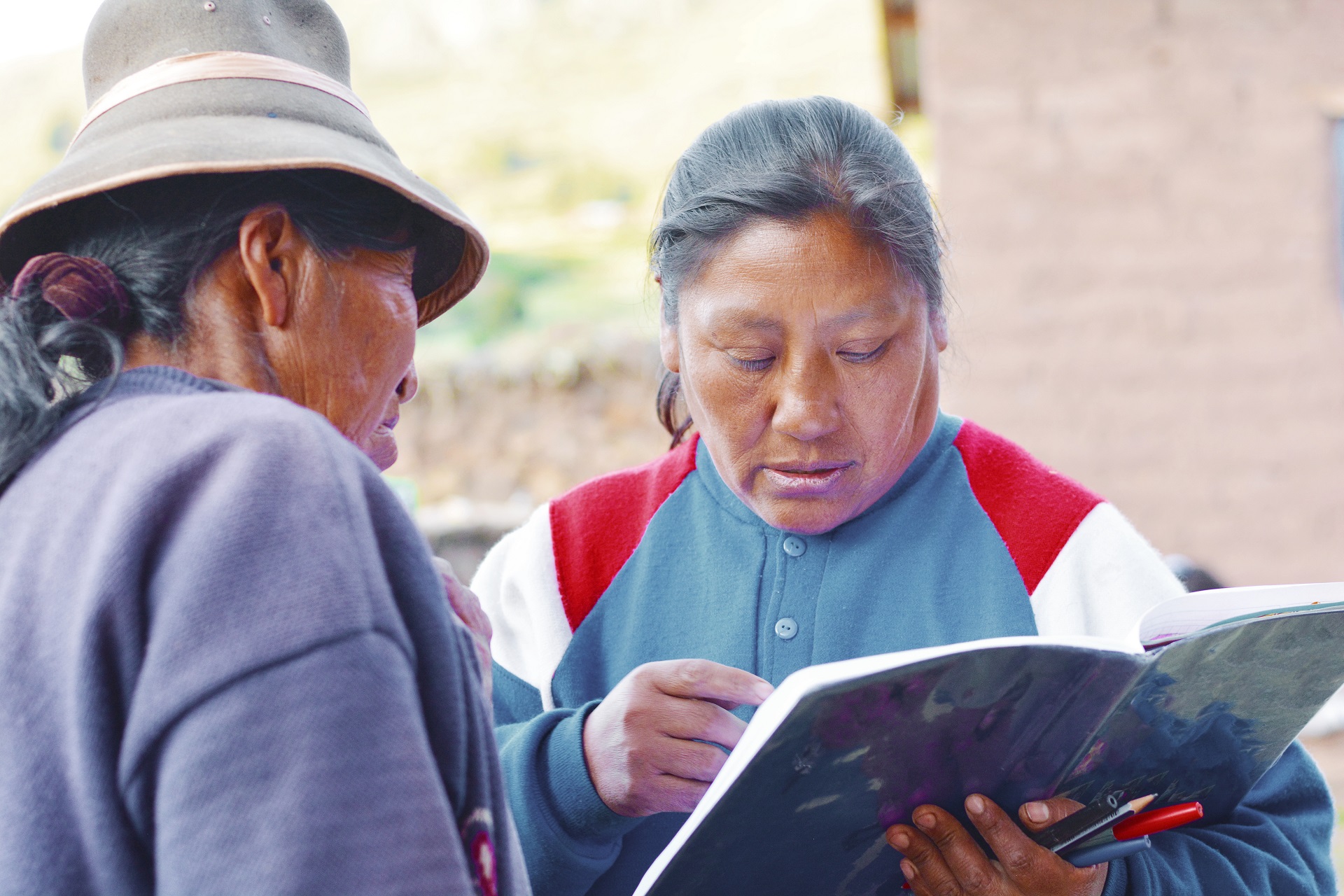
“Once you learn to read, you will be forever free.” ― Frederick Douglass
Literacy Development Through the Ages
We, as humans, along with our ancestors and descendants, are on a continuous evolutionary journey of learning and growth in the material, intellectual, and spiritual aspects of life. Literacy is the initial spark that ignites this journey. Without it, we are unable to kindle the torch in our hands to illuminate the path ahead.
We have come a long way in recognizing literacy as a basic human right and an essential component of development, a view now shared by most people and governments. Yet, there is still a long journey ahead. Just as a child requires different levels of literacy as they grow older to communicate with the outside world and express their inner thoughts, literacy skills and their scope have evolved as we've journeyed from ancient civilizations to the modern era. Each period, marked by various cultural, intellectual, industrial, technological, political, religious, and social revolutions, has influenced how literacy is perceived and implemented. This evolution continues today, with global movements and international policies emphasizing education and literacy as fundamental human rights and a foundation for building a more resilient, peaceful, and sustainable world.
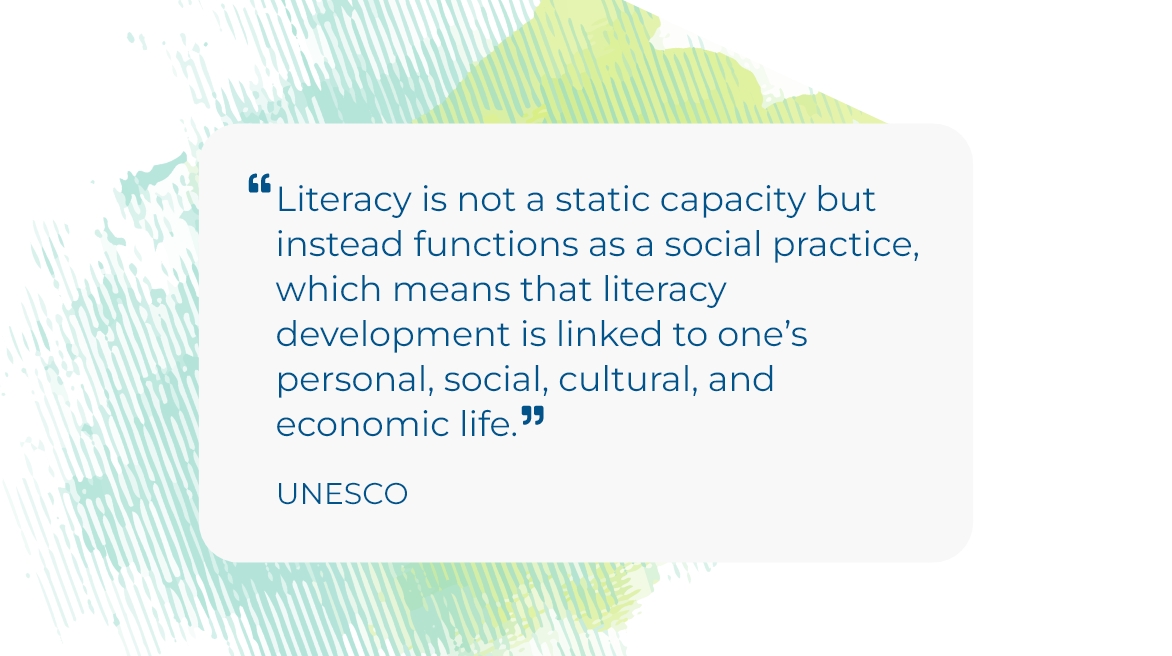
UNESCO, 2009 [2]
The Evolving Definition of Literacy Beyond Reading and Writing
Why do we emphasize the idea that literacy is more than reading and writing?
Here is the answer: Literacy, involving reading and writing as its basic skills, has a broader, more complex connection with language. Dr. Ulrike Hanemann, in her paper The International Review of Education – Journal of Lifelong Learning (IRE), edited by the UNESCO institute, introduced literacy as a “social practice” with transformative potential for change. As Hanemann notes, literacy can be viewed as a powerful tool which can shape our aspirations, self-perception, societal role, understanding of power, and how we contribute to our social environment. [3]
Moreover, the UNESCO Recommendation on Adult Learning and Education expands this concept. It perceives literacy as a “key component of adult learning and education, involving a continuum of learning and proficiency levels that allows citizens to engage in lifelong learning and participate fully in community, workplace, and wider society. It includes the ability to read and write, identify, understand, interpret, create, communicate, and compute, using printed and written materials, as well as the ability to solve problems in an increasingly technological and information-rich environment. Literacy is an essential means of building people’s knowledge, skills, and competencies to cope with the evolving challenges and complexities of life, culture, economy, and society (UNESCO and UIL, 2016, p. 7).” [4]
In this regard, literacy extends beyond just a set of skills or knowledge; it encompasses attitudes, values, and motivations that shape an individual's inner world and its reflection on the outer world. This comprehensive perspective on literacy highlights its critical role not only in personal growth but also as a driving force in global development.
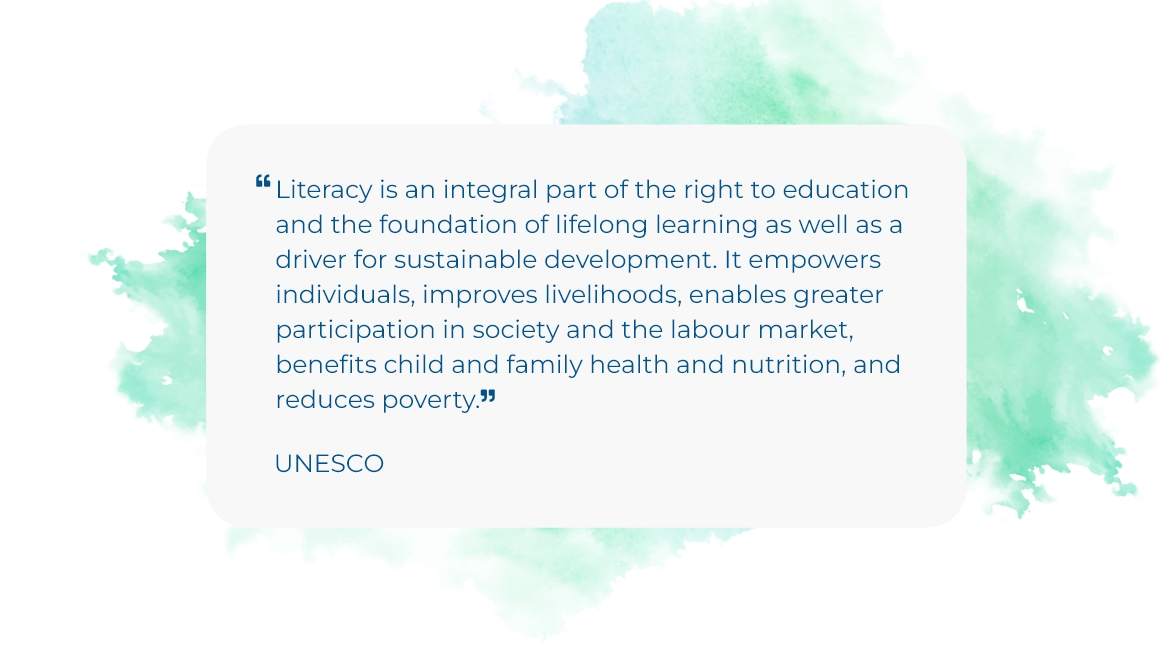
UNESCO [5]
Global Literacy Principles
There are a set of principles as a blueprint to align literacy programs with sustainable development goals. These global literacy principles serve as a foundation for designing effective literacy programs that contribute to global development by empowering individuals to become autonomous learners:
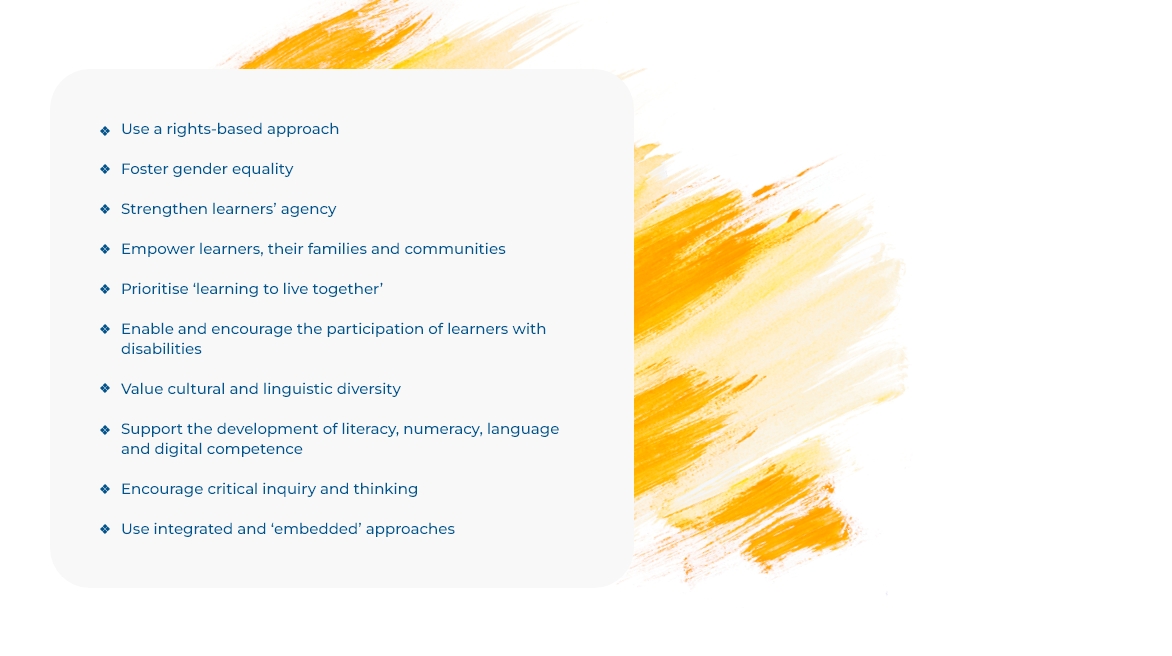
Global Literacy Principles by UNESCO [6]
Addressing Literacy Challenges
Despite progress since the 19th century, significant challenges remain. At the beginning of this blog post, we mentioned the cruel reality of millions of adults and children –mostly women and girls– who are illiterate or face low-quality or basic literacy. (If you're interested explore more on our blog addressing the challenges faced in women and girls' education.)
We face challenges of equity, quality, and relevance in literacy and education. Literacy is a basic human right and a driver of change which can only be activated when everyone, regardless of gender, age, etc., is exposed to literacy programs which are of high quality and relevance. By relevance, we mean literacy programs are designed in accordance with each community's needs, challenges, and potential. And by quality, we mean literacy programs which have the potential to shape the agents of change in each community.
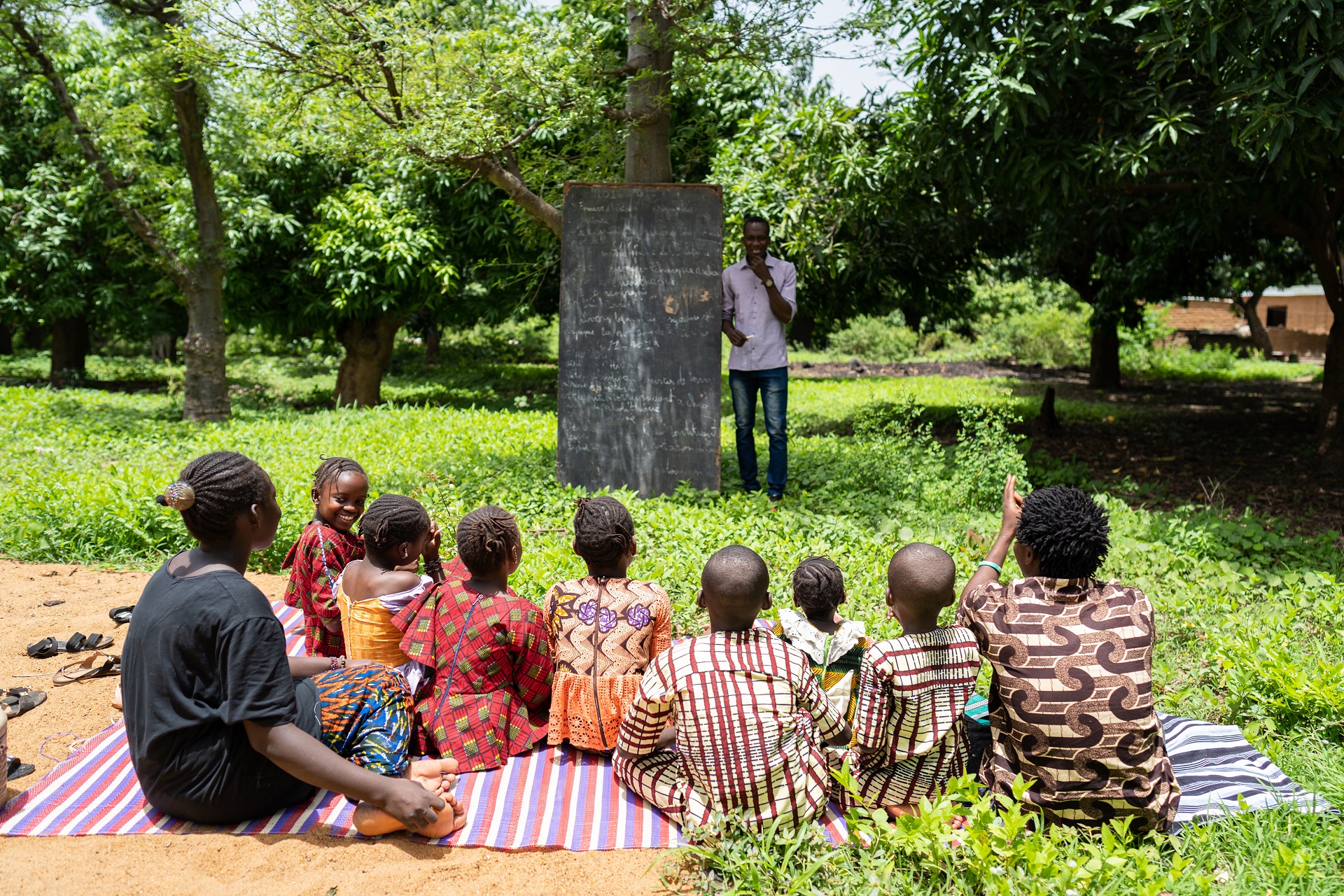
African Village Students Embrace Outdoor Learning with Passion
How You Can Be Part of the Solution
To address challenges in global literacy, including inequality, inequity, and its relevance to global development, global cooperation is essential. This doesn't require everyone to become educators, NGO founders, or program initiators, which would be unrealistic. Instead, we all can contribute by making a conscious choice to stay informed about the literacy challenges, needs, and opportunities worldwide and contribute whenever we are able.
You can support literacy and contribute to global development in various ways but the most accessible is to stay informed of the needs of initiatives and get involved by supporting them. TwoWings, among numerous NGOs backs education programs developed by FUNDAEC to empower change agents globally. Begin your support for global literacy by clicking here: Contribute now
References:
[1] World Bank. (2022). Global Literacy Rates. Retrieved from https://data.worldbank.org/indicator/SE.ADT.LITR.ZS?end=2022&start=2022&view=bar
[2] Stromquist, Nelly P. "Literacy and Empowerment: A Contribution to the Debate." 2009, UNESCO, Document Code 2009/ED/BAS/BLE/PI/1. Retrieved from https://unesdoc.unesco.org/ark:/48223/pf0000187698
[3] Hanemann, Ulrike. (2015). Lifelong literacy: Some trends and issues in conceptualising and operationalising literacy from a lifelong learning perspective. International Review of Education, 61(1), 9-13. Retrieved from https://www.academia.edu/67998716/Lifelong_literacy_Some_trends_and_issues_in_conceptualising_and_operationalising_literacy_from_a_lifelong_learning_perspective
[4] UNESCO. (2016). The Impact of Adult Learning and Education on Health and Well-being; Employment and the Labour Market; and Social, Civic and Community Life (3rd Global Report on Adult Learning and Education, p. 7). Retrieved from https://unesdoc.unesco.org/ark:/48223/pf0000245913
[5] Retrieved from https://www.uil.unesco.org/en/literacy/global-alliance
[6] UNESCO. (2016). The Impact of Adult Learning and Education on Health and Well-being; Employment and the Labour Market; and Social, Civic and Community Life (3rd Global Report on Adult Learning and Education, p. 46). Retrieved from https://unesdoc.unesco.org/ark:/48223/pf0000245913

